Early to call it peace process but something’s developing, says DEM Party deputy Çandar
In an interview with Duvar, DEM Party deputy Cengiz Çandar commented on the recent developments regarding the Kurdish issue. Çandar said it was still early to consider the government’s attempts as a new peace process, “but something’s developing.”
Ceren Bayar / DUVAR
Turkey’s opposition Peoples’ Equality and Democracy (DEM) Party deputy, veteran journalist and politician Cengiz Çandar on Oct. 13 gave an interview to Duvar regarding a possible new peace process amidst the recent developments.
In a surprising move on Oct. 1, gov’t-ally, far-right Nationalist Movement Party (MHP) leader Devlet Bahçeli shook hands with DEM Party deputies at the opening session of the Parliament.
He later “invited” the DEM Party to “become a party of Turkey,” offering a conditional reconciliation. Previously, he called for the closure of the DEM Party on several occasions, accusing them of collaborating with the outlawed PKK.
President Recep Tayyip Erdoğan on Oct. 12 supported Bahçeli and pointed to the preparation of a new constitution for a possible new peace process with Kurds. “We are always ready to resolve issues through non-terrorist methods,” Erdoğan said.
Moreover, Amberin Zaman from Al-Monitor reported that PKK leader Abdullah Öcalan spoke with other PKK leaders in Qandil and said “the time has come to negotiate laying down arms.”
Commenting on these developments, Çandar said it was still early to consider the government’s attempts as a new peace process, “but something’s developing.”
Below is the full translation of Çandar’s interview with Duvar:
How do you evaluate the recent change of attitude and discourse by Devlet Bahçeli and Recep Tayyip Erdoğan and the claims that a new peace process is being prepared?
Let's remember the 'Oslo Process', which dates back to 2006, started in 2008, and collapsed in the 2011 elections, and the 'Peace Process', which we all remember, started at the end of 2012, built on [PKK leader] Abdullah Öcalan and in which HDP MPs also played a role. From the backgrounds of these two periods to the current signs and statements, can the recent be called a peace process? I am not very sure. So far, there does not seem to be a mechanism similar to the peace processes both in Turkey and in the world.
If you say 'Is something developing?', yes, but it is too early to call it a 'peace process'. It seems that we are at the very beginning of the period of 'exploratory talks' as they are popularly called in Turkey.
Would it be correct to say that we are in the period paving the way for the process?
According to journalist Amberin Zaman in Al Monitor, there is a little more than that.
Amberin is a very valuable colleague. I have never witnessed her writing for manipulative purposes. When I read the reporting very carefully, I could more or less guess who the sources were. Therefore, I have no doubts about the validity of the information Amberin Zaman provides in her reporting.
But there is another debate: Do the people who spoke in that reporting want to have an early birth? Or do they really want to create a preliminary preparation? It is not possible to know at this point.
There are two emphases in that reporting. One; Öcalan is in talks with the state. Two; there is communication between Öcalan and Qandil. Of course, this is also provided by the state.
When all these are combined with the words chosen by Devlet Bahçeli, the leader of the Nationalist Movement Party, in his speech at the group meeting, and the words chosen by President Erdoğan in his speech at the group meeting of his own party, we can see and feel that something is developing.
I believe that it is premature to use the term 'peace process' [at this time].
Some say that Erdoğan and Bahçeli's change in rhetoric and attitude has a more pragmatist purpose and is related to the 2028 elections. How would you evaluate it?
Ankara has a style of journalism that is very suitable for daily polemics. News is produced with perceptions and reactions to fit the agenda of that day, that week.
However, it is important to pay attention to the words chosen by Devlet Bahçeli in his speech at the group meeting of the MHP, the words chosen by President Erdoğan in his speech at the AKP group meeting a day later, and the words he said on the plane back from Serbia. To think that these statements are only an investment for the elections, or that President Erdoğan is calculating this way in order to be re-elected as President, seems to me to build a very narrow political equation.
If the constitutional work starts and progresses, we can see the constitutional work as a by-product of the process we are talking about, or we can see it as a natural outcome. But this is a very important thing. To consider an approach to the Kurdish question in Turkey within the framework of current debates would be to oversimplify the issue.
In his group speech, Erdoğan made a distinction between politicians who are arrested in the Kobanê case and those who are not. Can Erdoğan's statements be read as a sign that if there is to be a process, Selahattin Demirtaş and Figen Yüksekdağ will be excluded from this process?
His words are suitable to be read as such. Indeed, there have been comments in this direction. However, no approach that criminalizes the HDP over Kobanê and keeps Selahattin Demirtaş in jail despite ECHR rulings can lead Turkey in a positive direction. Let us hope that Erdoğan will see this reality.
What pushed the People's Alliance and the government to such a change in policy and discourse?
Turkey has become a country closed to the world and the region with its obsession with localism and nationalism. On the other hand, we do not see any attitude that logically analyzes who is doing what in the Middle East and why, and where the region is heading. On the one hand, Israel is militarily weakening its adversaries, especially Iran, with an extremely aggressive policy. But on the other hand, Israel itself does not know where and how to stop. All of this is pushing the region towards enormous confusion and uncertainty. Turkey's perceptions are inevitably affected by this uncertainty.
Turkey's most important problem, the Kurdish question, has actors outside Turkey's borders. There are actors in Syria, Iraq, and Iran. Therefore, the government now has the perception that the developments in the Middle East will have repercussions on Turkey. Therefore, there are efforts to take precautions within the general picture of the region and the uncertainty of the future.
But they have managed this problem so badly so far, and they have pushed it so far into insolvency and confusion that they don't really know how to get out of it. That is why exploratory steps are being taken.
It seems that there is a search for answers to questions like “What can be done with İmralı and Kandil? What kind of attitude can be developed against the DEM Party, which is the reflection of the same sociological structure in the Parliament? How can Turkey's security be positively affected?”.
For all these reasons, this issue has great importance beyond the constitutional debate.
The lack of transparency and the lack of a legal basis in the past peace processes were considered to be shortcomings. What should be considered if these 'exploratory' talks take shape today?
The way it has been handled so far, it continues to have the drawbacks you point out in this question.
Secondly, there is a mind game based on a slogan such as 'the DEM Party should be the party of Turkey'. There is no party in Turkey that is more Turkish than the DEM Party. The DEM Party is a more Turkish party than MHP. The MHP is almost non-existent in the southeast and east. The DEM Party is present in all regions of Turkey.
Now, there is a circle that says 'draw a clear line between you and terrorism', 'free yourself from the PKK' and puts this forward as if it were a precondition.
If you want the DEM Party to curse the PKK all day, you should know that this will not happen and it will not yield any results.
If you look at it in terms of its connection with terrorism, the DEM Party is a party that has built its existence on solving problems through negotiation from the very beginning. It is a determined party that has put forward solving the Kurdish issue through negotiations as its existential aspect, and has never taken up arms. In this respect, putting forward these conditions means to make things worse.
Think of Amberin Zaman's reporting. It is not the DEM Party but the state itself that is in contact with the PKK. Does the state perceive the PKK as a terrorist organization or as 'the identity card of the Kurdish rebellion' as Süleyman Demirel put it? If it is the former, you have to solve it with police measures, there is no other way. If it is the latter, you need to find a way to negotiate. In that case, you have to make use of the DEM Party today, just as the HDP was used in the previous peace process.
The previous peace process was almost a process in which members of the media would visit Qandil. But it was a completely 'local and national', open process with no third parties, no observers. It ended in July 2015 and after it ended, Turkey went through a nightmare period. In other words, a peace process without a third party has a strong possibility of being blocked. The third party is not very much liked. If it is going to be bipartisan, the political representatives of the Kurds and the AKP and MHP representing the state, they should be clear in their discourse.
It needs to be a transparent process in which civil society can be involved.
Nobody emphasizes it, but the Republican People's Party (CHP), the founding party of the Republic, must be involved in the process.
Of course, these are all elements that will be valid if there is a new peace process. As I said, it is too early to talk about a peace process. We need to wait and see more clearly the developments.
(English version by Alperen Şen)

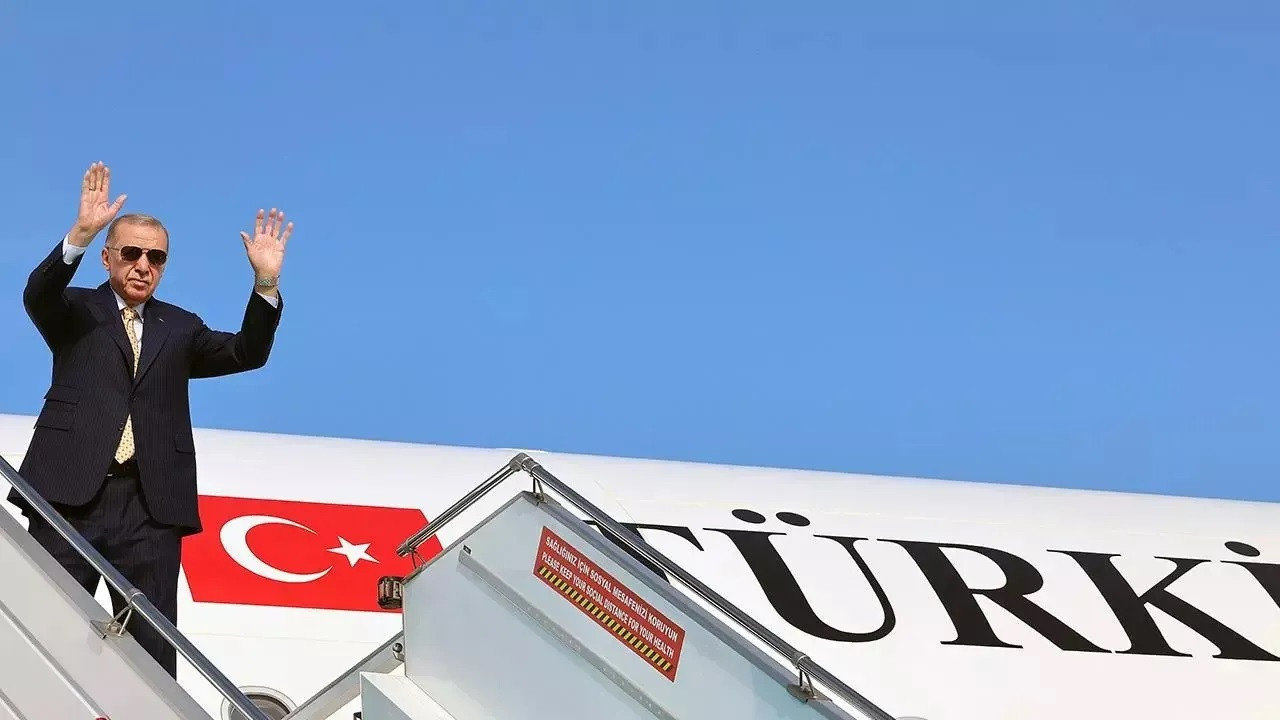 Erdoğan points to new constitution for possible new peace process with KurdsPolitics
Erdoğan points to new constitution for possible new peace process with KurdsPolitics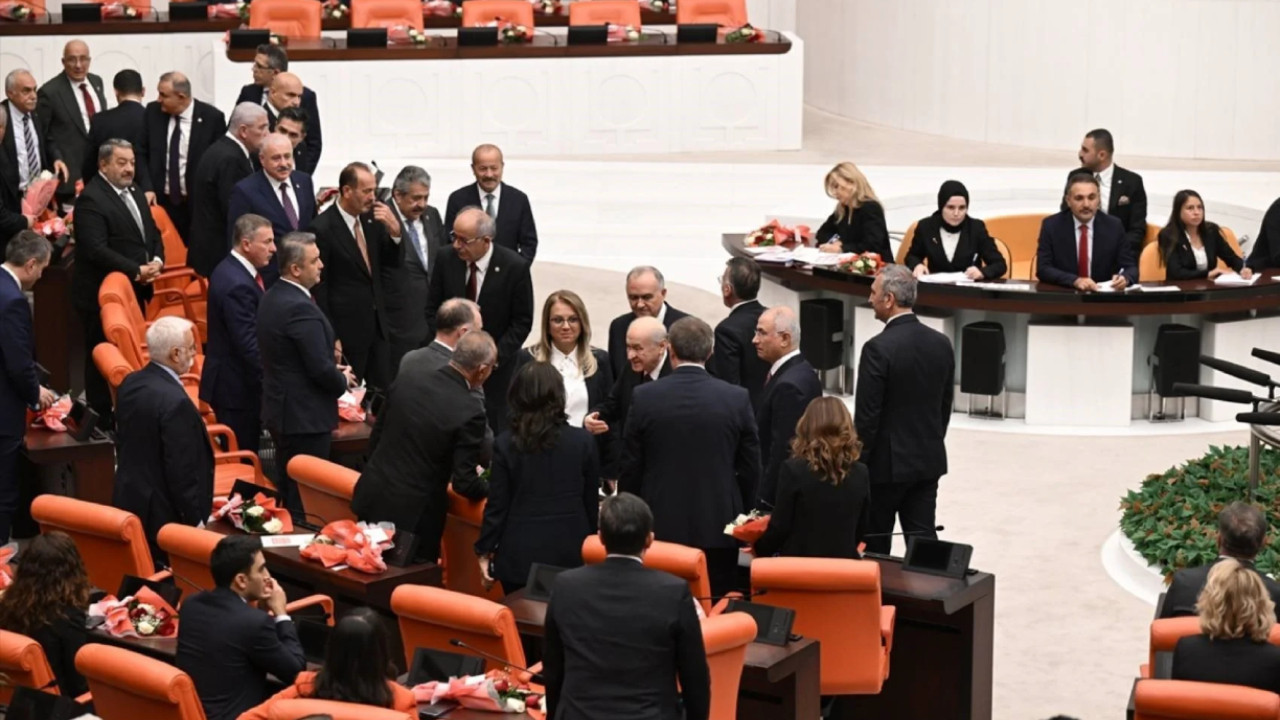 Is a new peace process possible?World
Is a new peace process possible?World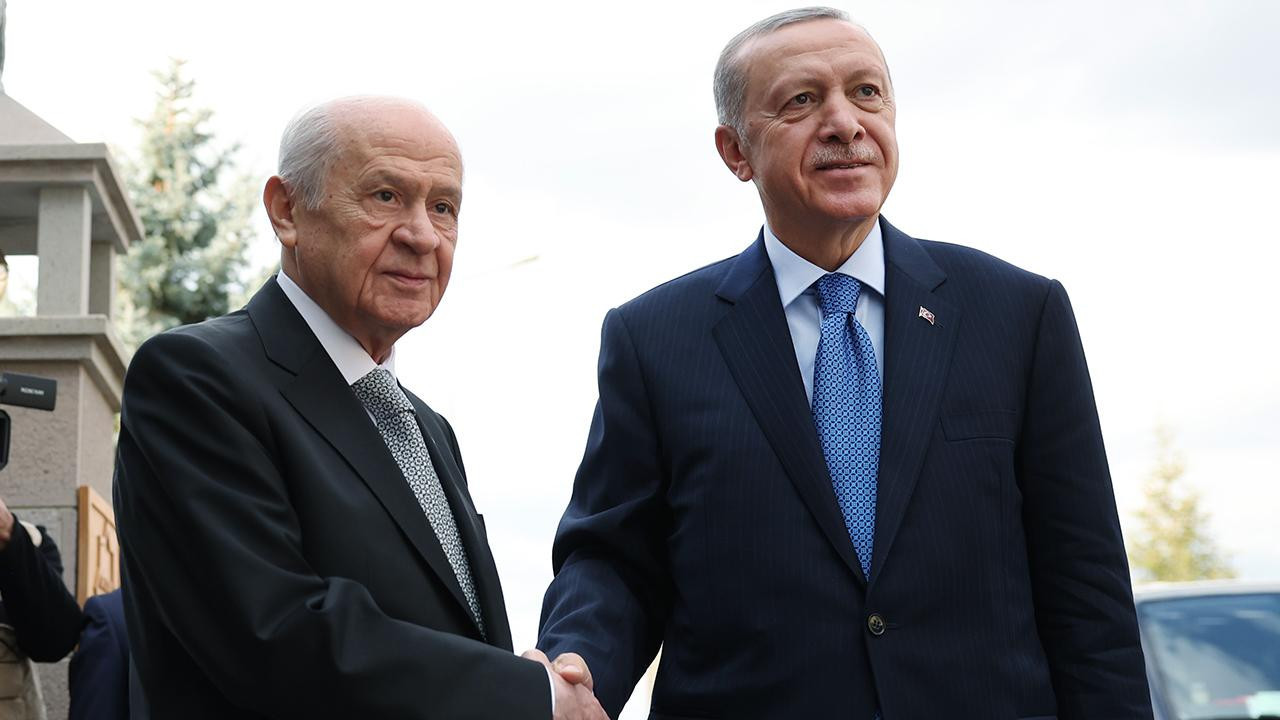 Bahçeli, Erdoğan signal reconciliation with DEM Party with conditionsPolitics
Bahçeli, Erdoğan signal reconciliation with DEM Party with conditionsPolitics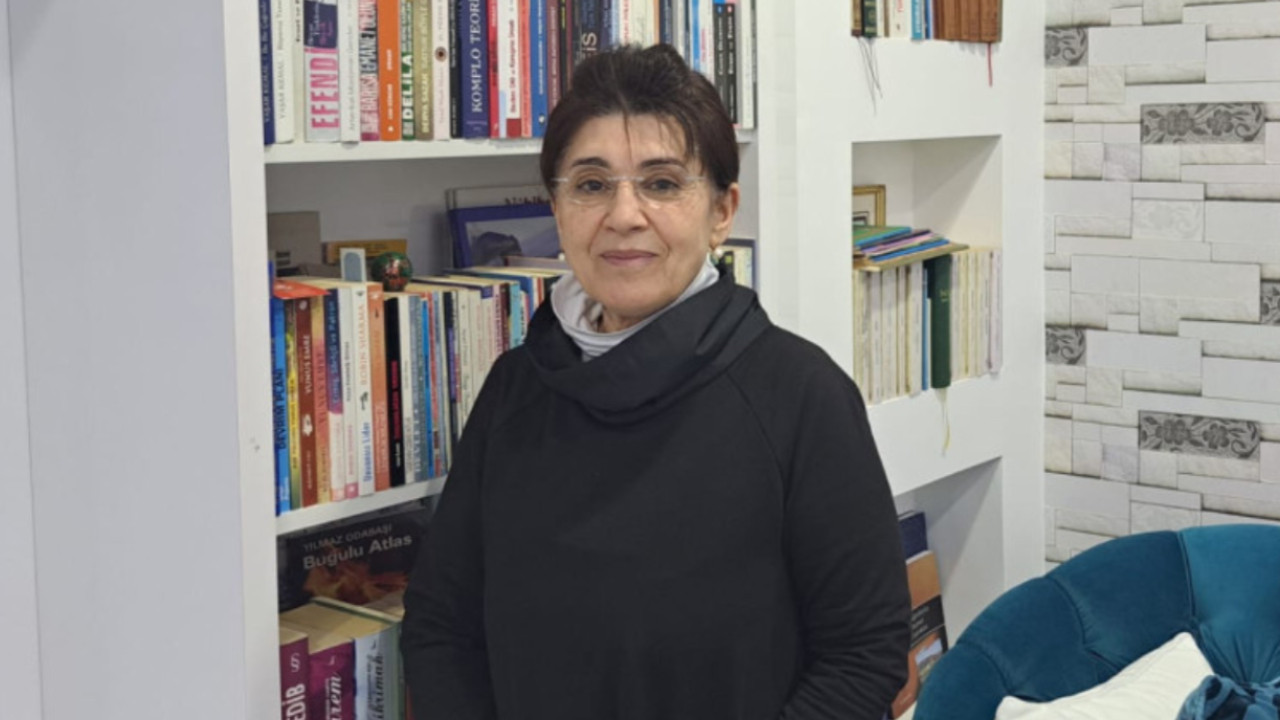 Erdoğan should re-initiate peace process, says veteran Kurdish politician Leyla ZanaPolitics
Erdoğan should re-initiate peace process, says veteran Kurdish politician Leyla ZanaPolitics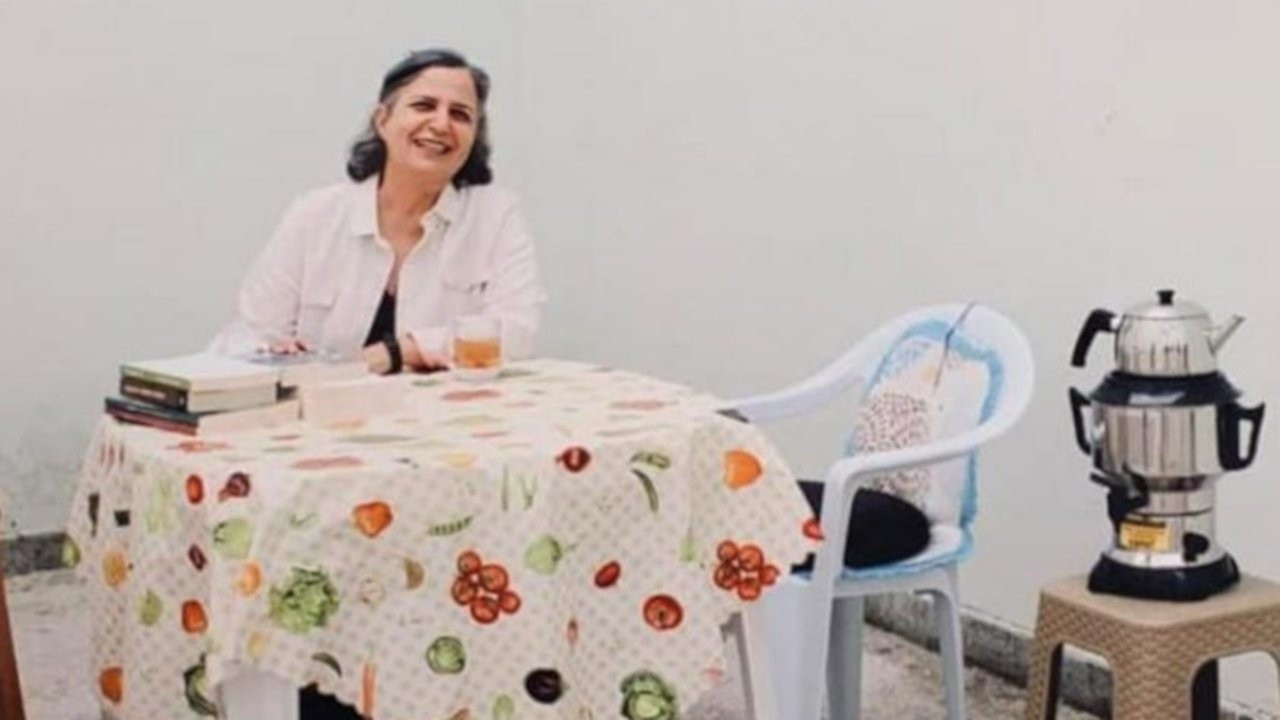 Kışanak believes chance of peace process after local elections slimPolitics
Kışanak believes chance of peace process after local elections slimPolitics